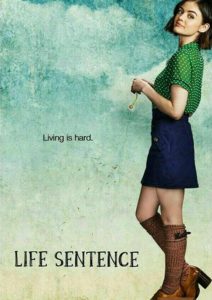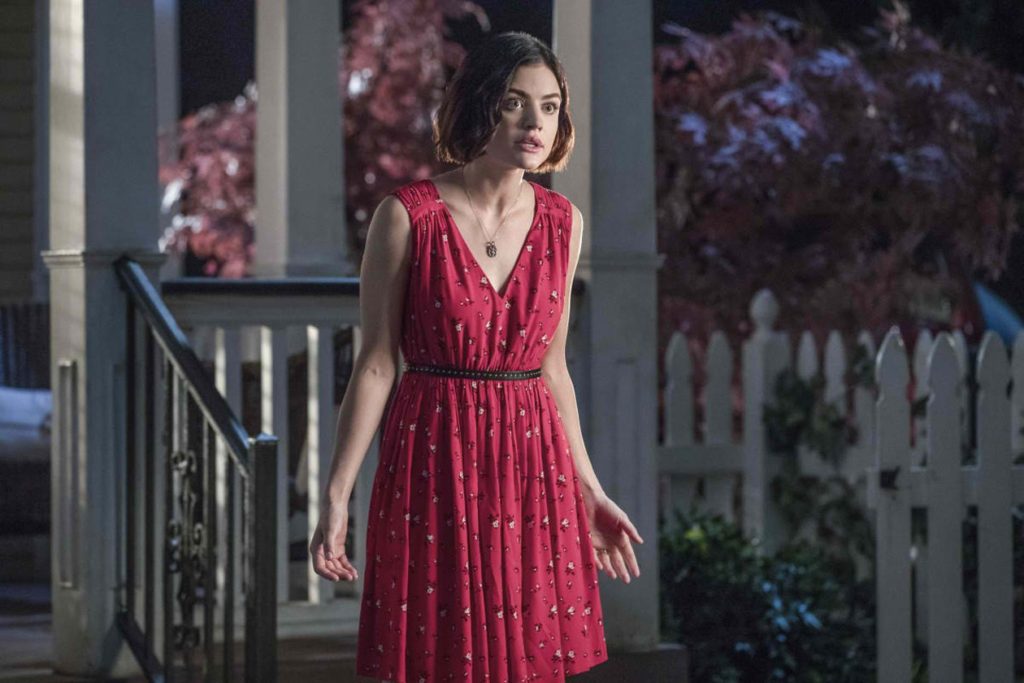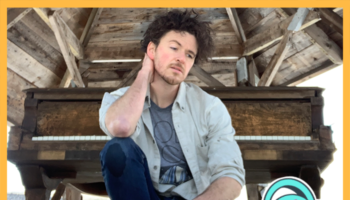 In our ongoing column Deep Focus, TrunkSpace is going behind the camera to talk with the directors, writers, and producers who infuse our world with that perennial pop culture goodness that we can’t get enough of.
In our ongoing column Deep Focus, TrunkSpace is going behind the camera to talk with the directors, writers, and producers who infuse our world with that perennial pop culture goodness that we can’t get enough of.
This time out we’re chatting with Erin Cardillo and Richard Keith, creators of the new CW series “Life Sentence.” Starring Lucy Hale, the dramedy tells the story of a young woman who, after living as if she were dying, has to navigate the extreme choices she made upon learning that her terminal cancer has been cured. We recently sat down with the pair to discuss juggling new humans with a new show, why they surrounded themselves with people more talented than themselves, and the reason their partnership works.
TrunkSpace: The series premiere of “Life Sentence” just went down. What emotions were you juggling with as you headed into the final stretch?
Cardillo/Keith: Exhaustion. Joy. Accomplishment. Pride. Fear. Did we mention exhaustion? It’s been a long road to get to the premiere of “Life Sentence”… we had this idea over two years ago and started pitching the show 18 months ago. We then wrote and produced the pilot and the first season all while having and raising newborns (who were born a week apart).
Keith: My daughter was born the day we turned in the studio draft of the pilot. And she took her first steps the day we turned in the studio draft of the finale.
Cardillo: My son followed her up by timing his milestones with the networks drafts. So it’s been a pretty hectic time in our lives, raising a new show and new humans!
Cardillo/Keith: In terms of the fear, it isn’t fear that the show is or isn’t good. That’s subjective. (We’d argue it’s good.) But no matter what you do, some people will think it’s great and others won’t. The fear is mostly… will the show find an audience that really connects with it? We both put our hearts and souls into this show, which required us to spend a lot of time away from our families. So, our hope is that our hard work comes across on screen and that these characters and their stories speak to people as strongly as they do to us. But at this point, that’s out of our hands. And there’s something terrifying and exhilarating about that.
Thankfully, we were blessed with an amazing lead, Lucy Hale, and a wonderful mentor and partner in Bill Lawrence (and immensely supportive spouses who supported us doing this in the first year of our children’s lives)… so… what we’re saying is, it seems like we were given all the tools to succeed and our hope is really just that we didn’t screw it up!
TrunkSpace: As writing/producing partners, you have worked on other series together, including your own creations. Does this one feel different? Does the buzz that’s been building for “Life Sentence” give you a different perspective at this stage in the process?
Cardillo/Keith: It definitely does. Between having someone like Lucy attached and a producer like Bill on board, there are certainly higher hopes for this show at the studio and network level than on our other projects. And it’s nice to have a certain amount of excitement from fans who are eager to see what we’ve all been working on these last 18 months. But, at the end of the day, buzz or not, you’ve got to find an idea you’re passionate about, try your best to surround yourself with people who are more talented than you, and put everything you have into bringing that idea to life. That process never changes, and that’s where the real reward is.
TrunkSpace: Tone is everything when it comes to establishing a series, but it feels like that’s even more important when your main character is battling terminal cancer. How long did you two work on getting the tone down, and how much did your cast have a hand in it becoming a reality?
Cardillo/Keith: There was a lot of discussion about tone on this show. Especially considering that we first conceived of it (and pitched it to the networks) as a ½ hour single-camera comedy. But the more we (and Bill Lawrence and our producer Liza Katzer) talked about it, the more depth we saw in the idea and in exploring not just how this diagnosis affected our lead, but also her entire family. And so, we decided to make some tweaks and try our hand pitching it to CW as an hour dramedy. Once they got on board, the idea continued to evolve. Our first draft had much more of a comedic bent to it than the final pilot (and series) ended up having. As Bill likes to say, if you’d asked us before we started shooting the pilot how many times we thought Lucy Hale was going to cry on screen, we’d have said, “Maybe once,” but our director (Lee Toland Krieger) would have said, “Oh, like a thousand.” In the end, we collaborated and landed at a more reasonable number (somewhere around 10). And that sort of collaboration and evolution continued throughout the first season of the show and helped the show find, we think, a nice balance of humor and heart. That sort of collaboration is one the reasons we both love working in television… and, of course, the actors had a major hand in shaping the tone as well. All the good intentions and well-written lines in the world don’t matter if your cast can’t pull that tone off. What was fun on this show was, we didn’t always know going in what the perfect tone of a given scene would be. So, we’d try a version played for drama, a version played more comedically (thankfully we have a cast that can do both), and then you get to go into the editing room and really shape the scene…
TrunkSpace: From the time that you first put pen to paper on the concept to where you are now, what are you most proud of when it comes to “Life Sentence?”
Cardillo/Keith: Finishing it! Every show starts the season with a big empty white board and there’s nothing that makes our stomach hurt worse. Except maybe taking a multi-vitamin without food (which is seriously gross). Also, as we mentioned, this show was constantly evolving and where this season ends isn’t necessarily where we would have said it ended when we pitched the show. But, we’re really excited about the direction it ended up going in. We feel like it will be a satisfying journey for our audience and Stella, and hopefully, everyone will find some tears and laughter along the way.
TrunkSpace: CW is a network that is known for letting shows find their legs and grow. As creators, is that a comforting thought knowing that your creation will have as good a chance as any at having an audience discover it and hopefully, become emotionally invested?
Cardillo/Keith: Absolutely! Nailed it. This question was easy.

TrunkSpace: You’re both actors in addition to being writers. Does that skill set give you a different perspective on developing characters and scenes? Do you test things out among the two of you to see if the performance side of things will pay off?
Cardillo/Keith: We do. Before we were getting paid to write, we turned Erin’s dining room into our office. We’d write and act things out (often loudly and enthusiastically) to test how scenes would play, much to the chagrin of Erin’s neighbors. Especially when we were working on the pilot of the “Significant Mother” digital series, which was a super raunchy sex comedy. It involved us acting out scenes where one of us was mad at the other for sleeping with our mom, and we had a surprising amount of candid conversations about dildos. In terms of representation, this show had it all! In fact, I was reading Lovegasm’s article on representation just the other day when it hit me just how ahead of its time this show was. Erin’s neighbors definitely gave her weird looks in the stairwell.
TrunkSpace: Was writing always in the cards or was it a part of your careers that came after the fact? Did working as an actor serve as the catalyst for where you both are today?
Cardillo/Keith: Acting was definitely the way both of us got our foot in the door. And it definitely informs our writing process. We pay a lot of attention to the flow and rhythm of dialogue because we know first hand how much easier an actor’s job is when the dialogue falls out of their mouth naturally. In terms of writing, that’s always been in the cards. We’ve both always been interested in telling stories… it’s why we became actors in the first place. And, at the end of the day, whether you’re writing, acting, directing, producing, or editing etc., if you’re working in film, television, or theatre, your job is to tell stories. And, eventually, both of us started to feel like there were stories we wanted to tell that were outside the scope of the characters we could play as actors. So we started writing. Initially on our own, trading feature scripts and giving each other notes. Until we realized that the stories we wanted to tell overlapped and it made sense to tell those stories together.
TrunkSpace: What is it that you have found in each other creatively that makes the partnership work?
Cardillo/Keith: I’m (Rich) really good at getting up early (like 4 a.m.) to crank out drafts and my brain dies by about 3 p.m. Whereas I (Erin) really am happy working away into the wee hours of the night. So it allows us, as a team, to basically work 24/7 if we have to. And it still allows each of us individual time to rest and the ability to work at the times where their creativity is at its peak. We also make each other laugh a lot, which is really important. Especially when you’re about to start shooting an episode in 10 days and you don’t have a script yet… not that we have ever had that happen to us multiple times on multiple episodes of multiple shows that we’ve worked on.
TrunkSpace: You spent time working on “Fuller House” for Netflix in 2016. What did you guys take from that experience that you have carried with you in your careers and to where you are today with a show like “Life Sentence?”
Cardillo/Keith: On “Significant Mother,” we didn’t really have a full writers room because of time and budget constraints, which meant we had never really been in a full writers room with a staff sitting around a table breaking stories. So when that show came and went and our subsequent pilot at CW, “The I Do Crew,” didn’t go, we both thought it was really important that we staff on someone else’s show. So, if we were fortunate enough to get another show, we’d know first hand what it was like to be someone on staff. And we hoped that that perspective would help us learn how to collaborate with our staff in a way that not only made them the most productive, but engaged, creatively fulfilled, and invested in the show. Because at the end of the day, it may say “Created by Erin Cardillo & Richard Keith” but that’s just the beginning. It takes hundreds of people to bring a show to life and keep it alive. And the more you can make everybody feel like this is their show, like they see a little piece of themselves, and that they see their hard work in it, the better the show will be.

TrunkSpace: Erin, you spent almost 100 episodes playing Esme Vanderheausen on the soap opera “Passions” from 2005 to 2008. Soaps can be such a breakneck environment where you’re sprinting through more pages a day than ever seems conceivable. Did working in that atmosphere sort of prepare you for anything?
Cardillo: It certainly had a boot camp element to it, but the biggest gift of that show was how creative I got to be during that time. Both with the character of Esme (who was an absolute loon) and because the writers let me improv a lot, which was so much fun. But also, because I only worked two to three days a week and we’d shoot my part of an episode out in three to four hours, which meant I actually ended up with a lot of free time on my hands. I wrote my first feature and developed my first TV project during that time. I never would have been able to do that if I’d been going from job to job as an actor and also working a side job to support myself, as a lot of actors have to. It was truly a gift in every sense of the word.
TrunkSpace: Richard, what have you learned in your career as an actor that you try to be mindful of now as an executive producer? Do you think you approach certain aspects of the job differently because of your own experiences in front of the camera?
Keith: Definitely. For me, it’s important to remember to really listen to your cast when they have thoughts or concerns on something that’s happening with their character in any given script. It’s every actor’s job to be an expert on their own character. To protect them. To fight for them. To service them. So, as a writer, you have to be humble and realize that while that character may have started in your mind, it now lives in their body, and while you have dozens of characters to focus on, they only have one which makes them an expert in a way you’ll never be.
TrunkSpace: If someone came to you with a time machine and offered you a chance to glimpse at what your careers will look like 10 years from now, would you take the futuristic peek?
Cardillo/Keith: Tempting, but no. Some of the best things in life happen unexpectedly. Sure, you may have a plan, but if you have an open heart and an open mind and are willing to let go of what you think should happen, we’ve found that things can turn out better than expected. And sometimes worse. But you learn from failure, and if you try to avoid it, you also rob yourself of the chance to grow as an artist and a person. Not to mention the fact that if you know what’s going to happen at the end of Act Five, you could forget to enjoy the ride of getting there.
“Life Sentence” airs Wednesdays on The CW.
Featured image by: Storm Santos






